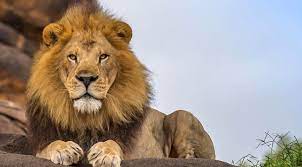By James Eze
I have followed much of the argument by many people on what animal is the appropriate Igbo totem. I have listened in silence for a long time and I think it is time to say a few things about what I think.
1. The Government House in Enugu which was the seat of government for the old Eastern Region, made up of today’s South East and South South with the exception of Delta and Edo States, was named “The Lion Building” by our illustrious ancestors; the Great Zik, M.I Okpara and others. They were outstanding thinkers, philosophers and scholars who left immense legacies which my generation has yet to match. They knew better than most of us today. Yet they chose the lion as our totem. Were they ignorant in totality or only on the choice of a totem? How come they did not consider the nativity of lions which is at the heart of today’s arguments, when they chose it? And were they tied to only animal totems that are native to Igboland? Would we have been happier if they had chosen a reptile or a vulture or some other hideous creatures that are native to Igboland? Chew on this!
2. The first indigenous university in Nigeria was founded by the Great Zik. He named it the University of Nigeria and chose once again, the image of a lion as its symbol. Did the Great Zik not know, as our modern social media intellectuals argue, that the lion is not indigenous to Igboland and cannot be an acceptable totem? I’d like to know. Sadly, most of the people who argue blindly about how lions are not indigenous to Igboland are products of this same university whose symbol is a lion. And once they hear “Lions and Lionesses” their response is a reverberating “Mmmmhhhhh.” Isn’t that ironic?
3. In my thinking, the lion is the only animal whose attributes come closest to the character traits of the Igbo. Generally, the attributes of a lion can be examined from some broad perspectives –
1. Bravery: Lions are brave, fearless and daring. A lion is not intimidated by difficulties or whatever size of the odds that are stacked against him. He shows courage in the face of danger and fights to protect his territory at great cost to life and limb. He does not easily back down and in most cases would rather go down defending its territory or pride. That’s the Igbo man too. The revolt of the heroic 75 Igbo slaves against their captors in Dunbar Creek, Georgia, US in May 1803 which gave us the historic Igbo Landing legacy was an act inspired by the lion traits of the Igbo. The trait is still in us today!

2. Protectiveness: Lions live in groups known as prides. A pride is made up of a few male lions and some females and cubs. A pride is probably the strongest fortress in the animal kingdom. Lions protect their territory with every strength available to them. If you want to feel the wrath of the Igbo man, touch his family or break into his homestead. He will invoke thunder to consume you on the spot. In the traditional Igbo society, a man who could not protect and provide for his family was considered a woman. Protectiveness is therefore one of the lion qualities of Ndigbo.
3. Gregariousness: Lions are highly social animals. A lion is more often than not a member of a group. Most times they hunt as a group. Success is often celebrated in groups. Kills are shared as a group and they often play and rest as a group. The traditional Igbo society is like a typical lion pride. There was always a deep sense of community and people looked out for one another. Even today, Igbo villages are upgraded lion prides where the success of one man belongs to the entire community and a successful man is not someone who can take care of only his family.
3. Risk taker: The lion is always ready to fight either as an aggressor or in self-preservation. The lion is a natural risk taker. It does not matter that the odds may overwhelm him. The Igbo found themselves in this position in 1967 and fought against overwhelming odds but fight they did…just like a modest sized pride up in a battle against a herd of elephants. We share this trait with lions.
4. Hunting: Lions are natural born hunters. They roam vast territories in search of food and favourable habitats. Sometimes, they swim across rivers and wander through hot desert sands in search of a kill. Like the lion, the Igbo is not intimidated by inclement weather while in search of success. They wade through hostile territories and conquer treacherous terrains to achieve success.
5. Traditional acceptance: Many highly respected traditional stools in Igboland have the lion symbol embossed on them. Eze Chukwuemeka Eri who sits on the ancient Eri throne in Aguleri which is acclaimed as one of the possible cradles of Ndigbo sits on a throne with prominent lion symbols embossed on it. The lion images are all over his palace too. This is replicated in many respected ancient stools in Igboland. Yet some “super bright” scholars tell us that the lion has never been native to Igboland.
And well…my dear people of Enugu State bear Agu as a name. Are Enugu people not Igbo anymore or simply not Igbo enough? Would they accept an alien animal so much as to give its name to themselves?
We may also wish to note that the lion is a fierce but colourful animal, strong but playful, combative yet gregarious. The Igbo man has all these attributes in his personality. He can be arrogant yet accessible, flamboyant yet subdued when necessary, friendly but warlike. Ihe eji abu onye Igbo erikakwanu.
In conclusion, it would be insincere to doubt that Ndigbo share strong attributes with the lion. It is quite easy to see therefore, that our pioneers were smart enough to observe these similarities and adopt the animal as our totem. People who argue in favour of other animals in the cat family can hold onto their preferences but I stand with our illustrious fathers; Agu, the lion is my own totem.
There’s a need for further research on this subject matter.
Ya diba!
*Eze, the Chief Press Secretary to Anambra State governor, Chief Willie Obiano, wrote from Awka.













